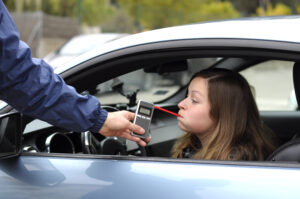In South Carolina, being pulled over for suspected driving under the influence (DUI) can be a stressful experience. One of the most intimidating aspects of a DUI stop is the request to take a breathalyzer test. However, it’s crucial to understand your rights and the legal requirements surrounding breathalyzer tests in order to make informed decisions. Knowing how to refuse a breathalyzer test legally can potentially protect your rights and future legal interests.
Your Rights Under South Carolina Law
As a driver in South Carolina, you have certain rights when it comes to breathalyzer tests. It’s important to be aware of these rights to ensure that law enforcement officers respect them during a DUI stop. One of the key rights you have is the right to refuse to take a breathalyzer test. However, exercising this right comes with its own set of consequences, so it’s essential to understand the implications before making a decision.
Understanding Implied Consent Laws
South Carolina, like many other states, has implied consent laws in place regarding breathalyzer tests. Implied consent means that by operating a motor vehicle on the state’s roads, you are implicitly agreeing to submit to chemical testing if lawfully arrested for DUI. Refusing to take a breathalyzer test can result in immediate consequences, such as license suspension and potential fines.
Consequences of Refusing a Breathalyzer Test
While you have the right to refuse a breathalyzer test in South Carolina, doing so does not come without consequences. One of the primary repercussions of refusal is administrative license suspension. Upon refusal, your driver’s license can be suspended for a period of time, typically ranging from six months to a year for a first offense, and longer for subsequent offenses.
Legal Requirements for Refusal
When refusing a breathalyzer test in South Carolina, it’s important to do so in a manner that complies with legal requirements. Simply stating that you refuse to take the test may not be sufficient. It’s advisable to clearly and explicitly communicate your refusal to the arresting officer. However, it’s crucial to remain calm and respectful during the encounter, as any aggression or hostility could escalate the situation and potentially lead to additional charges.
Seeking Legal Counsel
If you’ve been arrested for DUI in South Carolina or have refused a breathalyzer test, seeking legal counsel is imperative. An experienced DUI attorney can review your case, advise you on your rights, and help you navigate the legal process. They can also represent you in court proceedings and advocate on your behalf to minimize the potential consequences of refusal or DUI charges.
Exploring Defense Strategies
When it comes to defending against DUI charges or refusal of a breathalyzer test in South Carolina, there are various defense strategies that an experienced attorney can employ. These may include challenging the validity of the traffic stop, questioning the accuracy of the breathalyzer test equipment, or arguing that law enforcement officers violated your rights during the arrest process. By thoroughly investigating the circumstances of your case, your attorney can identify any potential weaknesses in the prosecution’s evidence and work to achieve the best possible outcome for you.
Protecting Your Future
The consequences of a DUI conviction or refusal of a breathalyzer test in South Carolina can extend far beyond the immediate legal penalties. A DUI on your record can impact various aspects of your life, including your employment opportunities, professional licenses, and auto insurance rates. By taking proactive steps to defend against these charges and protect your rights, you can minimize the long-term consequences and safeguard your future.
Educating Yourself on Legal Rights
In addition to seeking legal representation, it’s essential to educate yourself on your legal rights regarding breathalyzer tests and DUI stops in South Carolina. Understanding the law and your rights can empower you to make informed decisions during a traffic stop and protect yourself from potential abuses of power by law enforcement officers. By staying informed and proactive, you can assert your rights effectively and navigate the legal system with confidence.
While refusing a breathalyzer test in South Carolina is within your rights, it’s essential to understand the legal requirements and potential consequences. By knowing your rights and seeking legal counsel when needed, you can make informed decisions and protect your interests during a DUI stop. If you find yourself in a situation where you’re unsure of what to do, remember to stay calm, assert your rights respectfully, and consider consulting with a qualified DUI attorney for guidance.
If you’re facing DUI charges or have questions about refusing a breathalyzer test in South Carolina, contact The Bateman Law Firm today. Our experienced attorneys are here to provide the legal assistance and guidance you need during this challenging time. Don’t wait—protect your rights and future interests by reaching out to us for a consultation.
